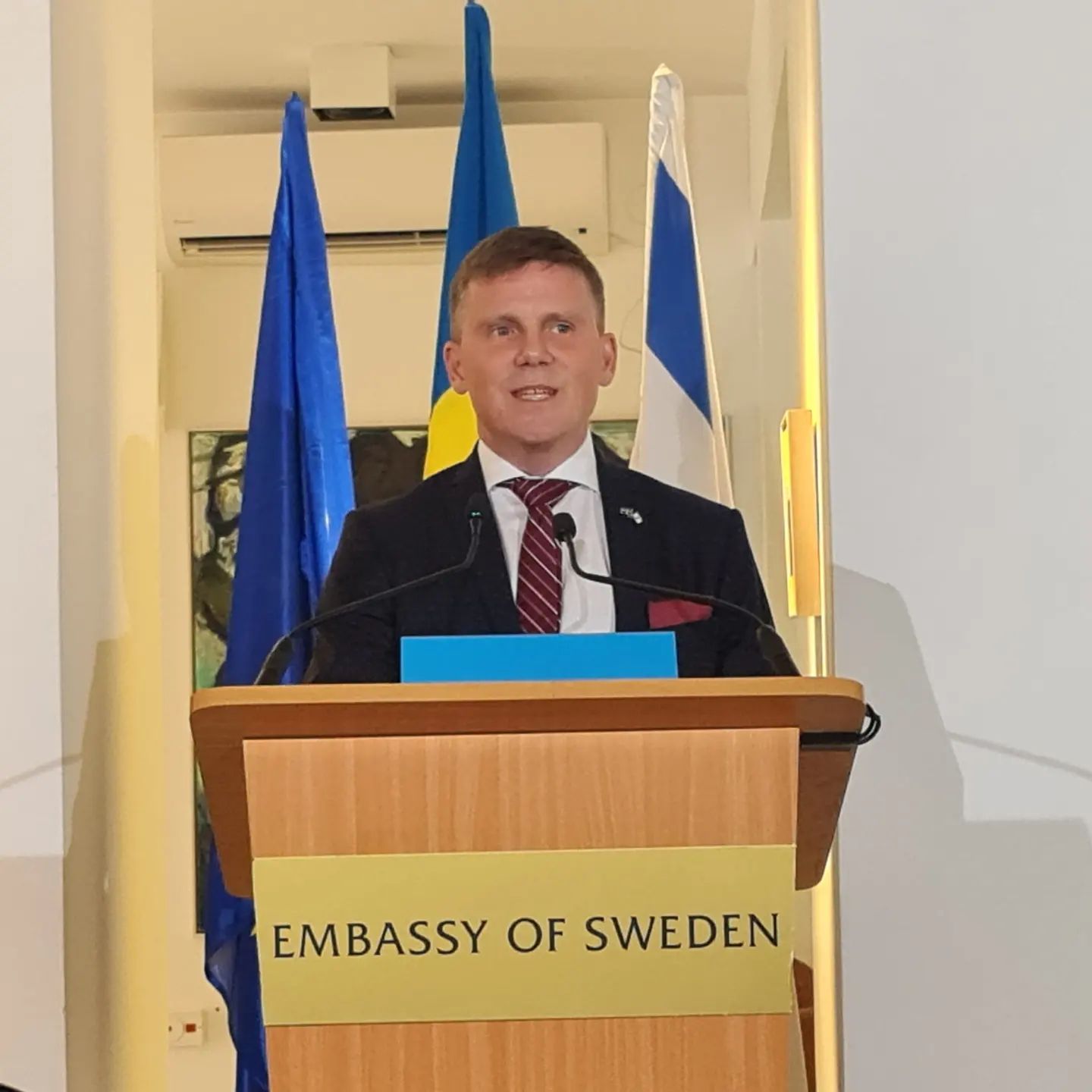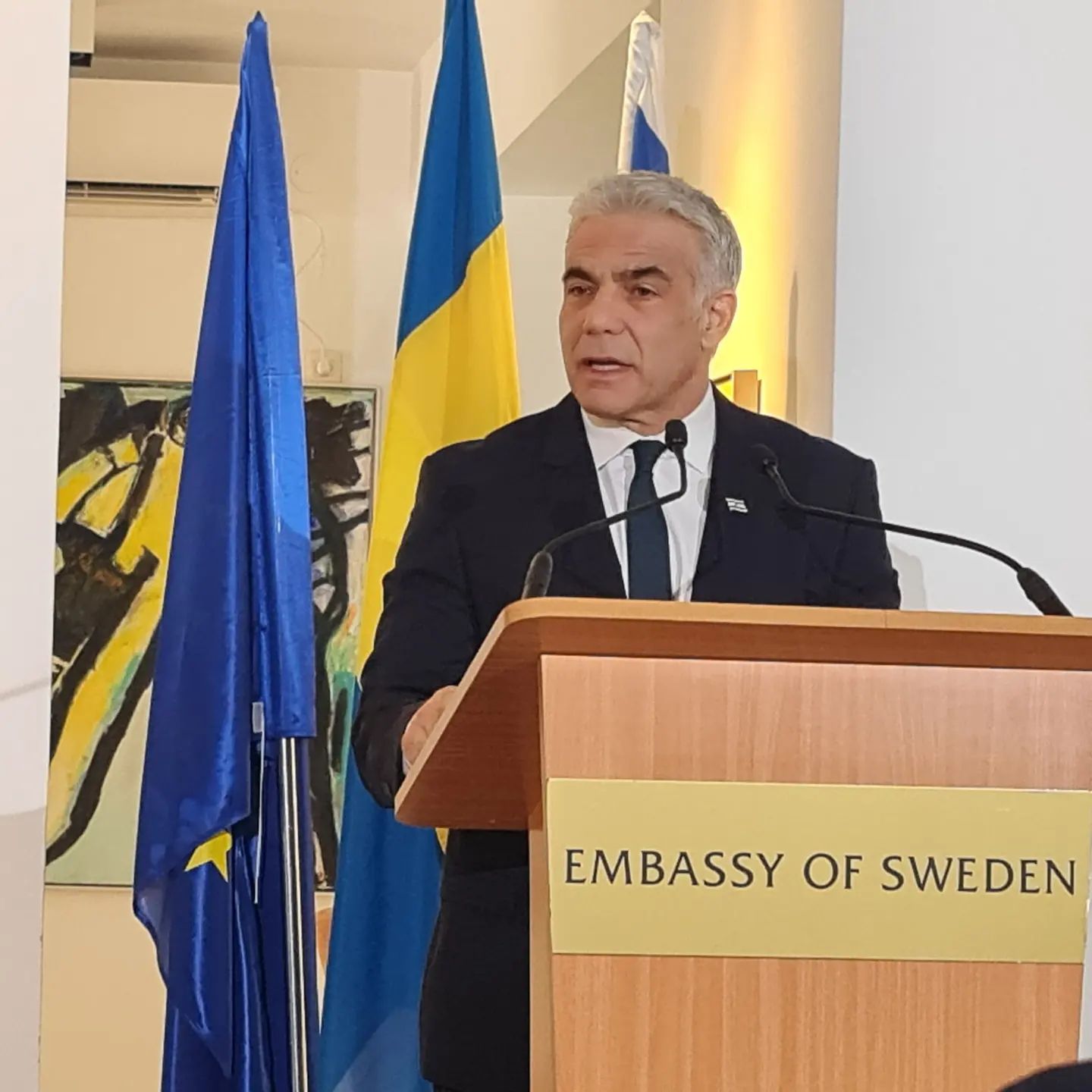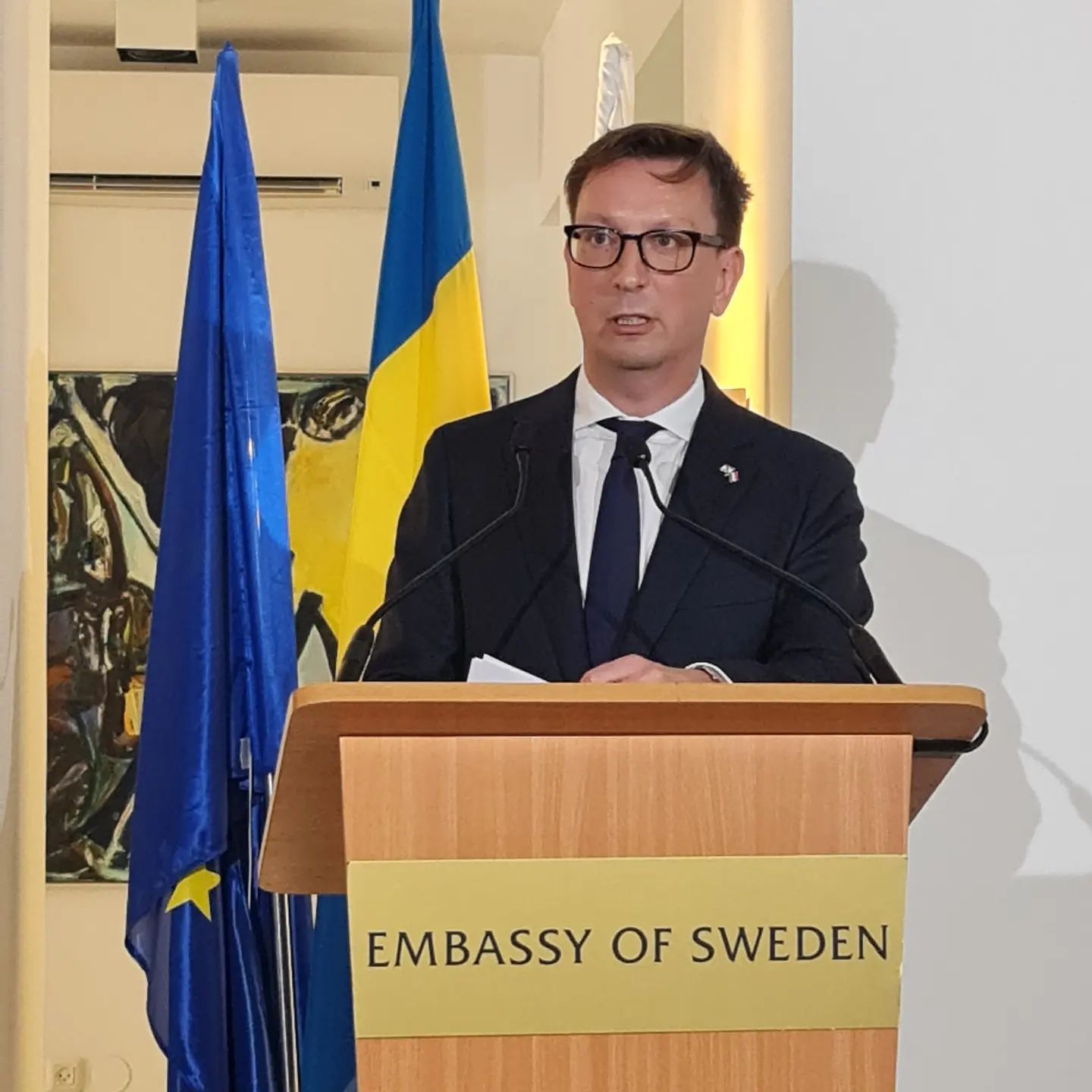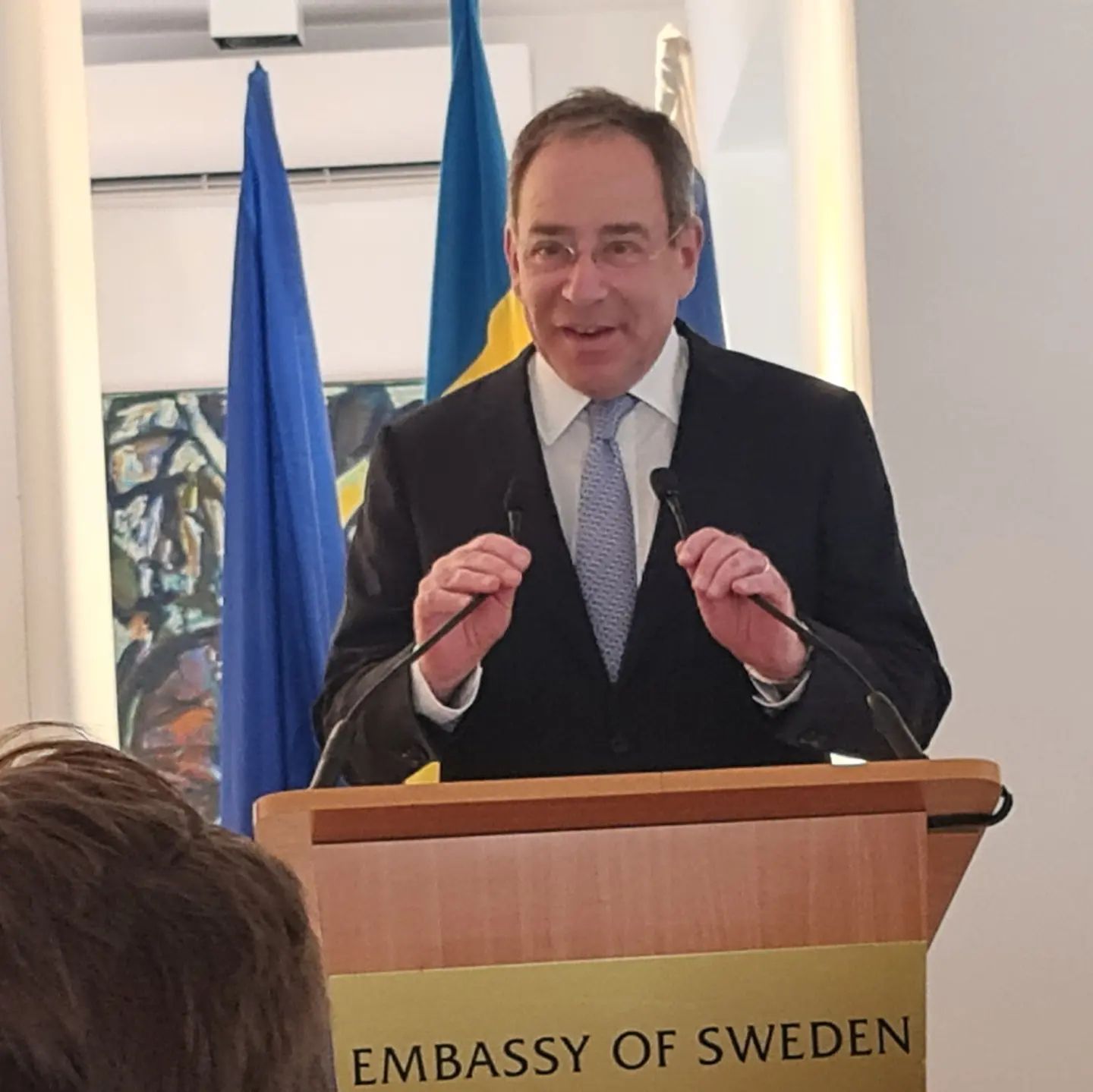
Diplomats and Holocaust survivors came together at the Swedish Ambassador’s Residence in Herzliya on Tuesday afternoon to mark the 110th anniversary of the birth of diplomat and hero Raoul Wallenberg.
Raoul Wallenberg is world-renowned, and revered, for his courage in saving tens of thousands of Jewish lives while stationed as the Swedish representative in Budapest, Hungary, during one of the cruelest periods of humanity. Risking his life countless times for Jews he had never met before and would never see again, Wallenberg is, as the speakers noted at the ceremony, a paragon of humanity. Sadly, he paid the ultimate price, disappearing into the abyss of post-World War II USSR, never to be heard from again, with his family lacking even the closure of confirmation of his death to this day.
H.E. Mr. Erik Ullenhag, Ambassador of Sweden to Israel, noted the mixed emotions as he stood there, proud of the bravery and sheer humanity of Wallenberg in his capacity as a Swedish diplomat, while remorseful that years went by without initial appreciation of Wallenberg, or sufficient efforts to help his family get closure, or even tell his story properly.
Ambassador Ullenhag thanked several countries who have been instrumental in sharing the inspiring story of Raoul Wallenberg, including Australia, Canada, Israel, the United States, and the city of Budapest, who have all made Wallenberg an honorary citizen as a tribute to his heroism.
The ambassador noted that everyone of us can find inspiration in Raoul Wallenberg the human, who “showed us that one person can make a difference.” Knowing the great personal risk he was putting himself in, Wallenberg told his colleague Per Anger "I've taken on this assignment, and I will never be able to go back to Stockholm without knowing inside myself that I'd done all a man could do to save as many Jews as possible". That was the last time he would see his friend.
Ambassador Ullenberg concluded his remarks by noting that anti-Semitism is still a challenge all around the world, including in Europe. Wallenberg’s actions, he said, show the moral obligation for all to speak out. “The greatest danger to a society is not the evil from the evil people. The greatest danger is when the good people are silent. Each and every one of us has a role and a responsibility to fight anti-Semitism, racism and intolerance of today. Not all can be heroes like Raoul Wallenberg. But all of us can do something. That is the best way we can honour the legacy of Raoul Wallenberg.”

Foreign Minister H.E. Mr. Yair Lapid, the son of a Holocaust survivor, spoke on behalf of the state of Israel. Minister Lapid brought this message home, by sharing his own personal story of how Wallenberg had transformed the destiny of an entire family. The foreign minister explained how his father, a thirteen year old boy in the Budapest Ghetto, was rescued by Wallenberg. To this day the family has the faded Swedish document that Wallenberg used to save Jews—a ”Wallenberg passport” as it was known.
Thanks to Wallenberg’s courage and empathy, the elder Lapid survived the war, moved to Israel, married, had children and grandchildren. He ultimately served as the Justice Minister of Israel, with his son the Foreign Minister and alternate Prime Minister of Israel—just one example of the ripple effects of Wallenberg’s actions. Minister Lapid explained that in his eyes, the story of Raoul Wallenberg shows that any person can make a difference by caring about others, and gave thanks on his family’s behalf for the gift of life that Wallenberg bestowed upon them.

H.E. Ambassador Levente Benkő of the Hungarian Embassy in Israel, expressed his own appreciation for the initiative to commemorate the 110th birthday of Raoul Wallenberg. The ambassador noted that Wallenberg was “not only a Righteous among the Nations, but a symbol of heroism, of perseverance and of humanity.” Ambassador Benkő stressed the importance of the event happening in Israel, in the presence of survivors, as evidence of the perseverance of the Jewish people. He explained that sections of the Danube riverbank in Budapest are named after Raoul Wallenberg and other diplomats who acted to save human lives during the darkness of the Holocaust, reiterating that their heroism comes from a choice made to endanger themselves to save others, when they could have simply opted to save themselves. The ambassador said that although Wallenberg was Swedish, Hungarians see him as a hero for all humanity.
Ambassador Benkő noted that Hungarian state responsibility for the horrors of the Holocaust years in Hungary, include three principles by the current government of Hungary: the moral imperative of “Never Again”; zero tolerance against all forms of antisemitism, and protection of the Jewish community. Moreover, “Hungary fully understands that the State of Israel is the ultimate guarantor of Jewish security which is the precise reason why we are steadfast supporters of the Jewish state in the face of unfair international criticism.”

Ambassador of the United States H.E. Mr. Thomas Nides posed the question of how Raoul Wallenberg would see our world today, with wars and conflicts engulfing the world, including in Europe, with the conflict in Ukraine. The ambassador expressed his belief that Wallenberg would be happy to see Sweden joining NATO, as well as support a two-state solution in the Israeli-Palestinian context as the key to maintaining a Jewish, democratic state.
Following the remarks by the diplomats, a video was played, in which those who had been saved personally by Raoul Wallenberg reflected on their own experiences and the impact on their lives, with several of the survivors in attendance. Former Justice Minister of Canada, Irwin Kotler, also gave a pre-recorded address in which he outlined the ways in which Raoul Wallenberg had foreshadowed what would be recognized as basic human rights and international law principles post-World War II. The guests then enjoyed a reception and the chance to share their impressions. Distinguished guests in attendance included Holocaust survivors and their families and foreign diplomats; David Castel, Honorary Consul of Sweden; Former Knesset Member Colette Avital; Dani Dayan, chairman of Yad Vashem; Danny Rainer and Vivian Epstein of the International Raoul Wallenberg foundation, and Steve Linde and Greer Fay Kashman of the Jerusalem Post.








